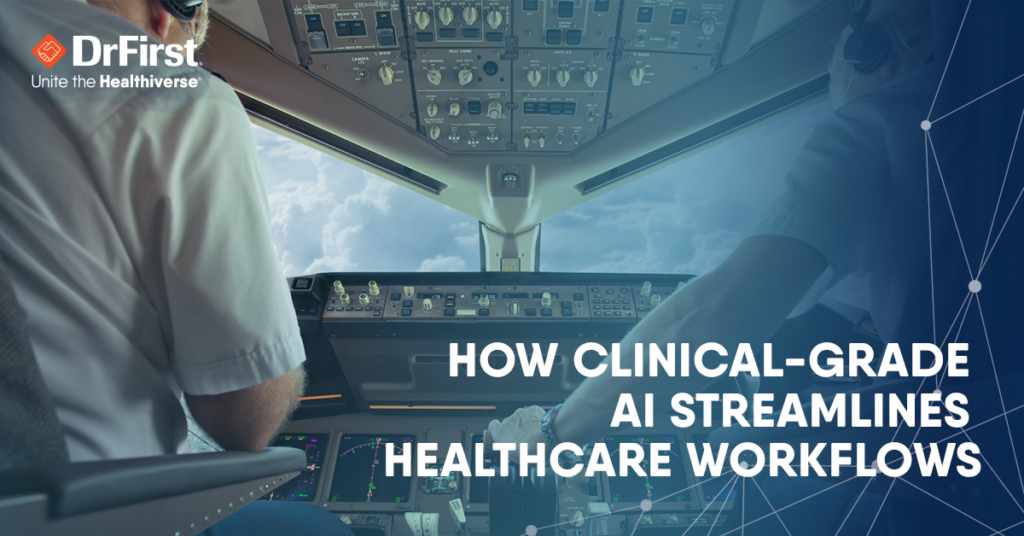Colin Banas, M.D., M.H.A.
How Clinical-Grade AI Streamlines Healthcare Workflows
AI Acts as a Clinical Co-Pilot to Aid in the Decision-Making Process
As the buzz around artificial intelligence in healthcare grows louder, many clinicians are questioning exactly what we mean by “AI” and how it will impact their everyday work. That was the subject of my recent conversation with Mike Kottmer on the WEDI podcast, where we discussed the present realities and future possibilities of AI in healthcare. Read on or listen to the recording below to learn how clinical-grade AI is enhancing clinical workflow efficiency.
Defining AI in Healthcare
Rather than “artificial intelligence,” I use the term “augmented intelligence” to draw the important distinction that these tools are not replacing clinicians but enhancing their workflows, allowing them to operate at the top of their license and spend more time caring for patients.
When discussing potential uses of AI, the conversation often revolves around broad versus narrow focus. While generative AI tools like large language models and ChatGPT provide broad capabilities with endless use cases, DrFirst has spent the past 10 years concentrating on narrowly focused AI. This involves applying technology and machine learning to the singular problem of medication safety and the pivotal process of medication reconciliation.
We call it clinical-grade AI and differentiate it from the broad uses of generative AI by training it on real-world clinical data, rather than general information from across the Internet. This specialized version of AI requires clinical oversight and regular maintenance to ensure constant refinement and improvement. Data security, a crucial consideration in healthcare, is also pivotal to achieving clinical-grade status.
AI as a Clinical Co-Pilot
The impact of clinical-grade AI lies in its potential to significantly enhance efficiency and the patient experience by acting as a co-pilot, aiding clinicians in decision-making processes. DrFirst’s AI engine processes over 26 million medication data transactions per day. We regularly look at the transactions and new medications that are being introduced into the field and review new sets of prescription instructions (“sigs”), then we retrain our AI model so it’s constantly iterating and improving.
At every healthcare visit, it’s vital for clinicians to know what medications a patient is taking. When they don’t have that data or don’t have it in a usable format, that’s how mistakes happen. By adding clinical-grade AI as co-pilot, clinicians can prevent mistakes from slipping through the cracks, ultimately minimizing the potential harm to patients.
Clinical-grade AI also serves as a force multiplier to alleviate the strain on clinicians, eliminating routine data-entry tasks and allowing clinicians to focus on patient care. Automation delivers efficiency and improves patient care—two compelling reasons to embrace AI, provided it is responsibly monitored, transparent, and with a clear focus on the best interests of both clinicians and patients.
Listen to the full podcast here:


















